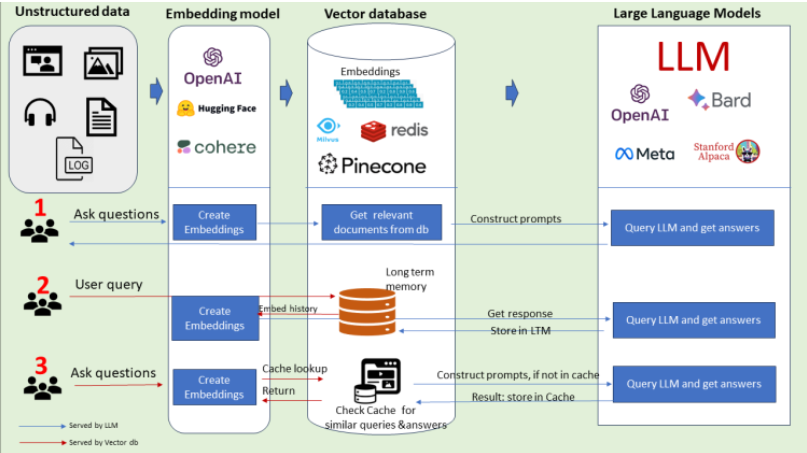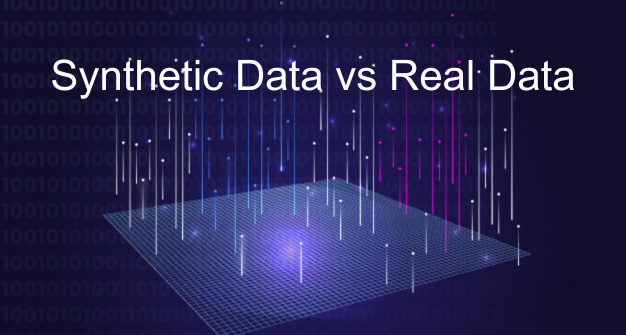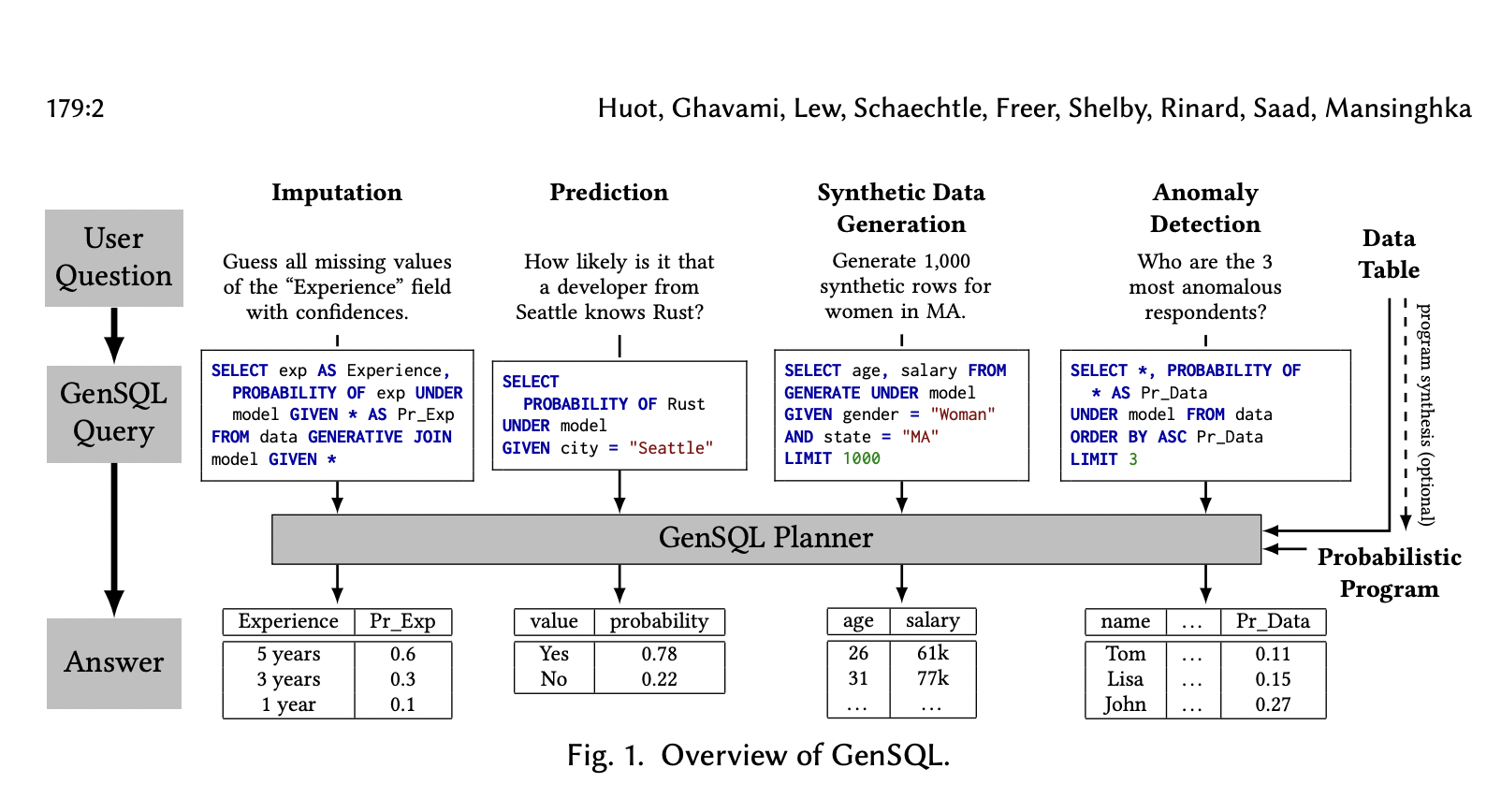
Etsy Introduces New AI-Generated Item Guidelines in Seller Policy
Generative AI
Zaker Adham
08 October 2024
14 July 2024
|
Zaker Adham
Summary
Summary
A groundbreaking tool, GenSQL, has been unveiled, making it easier for database users to perform sophisticated statistical analyses of tabular data without needing to understand the intricate processes involved.
GenSQL, a generative AI system for databases, empowers users to make predictions, detect anomalies, estimate missing values, correct errors, and generate synthetic data with just a few simple commands.

For example, in medical data analysis, GenSQL could flag an unusually low blood pressure reading for a patient typically having high blood pressure, even if the reading falls within the normal range for others.
By automatically integrating tabular datasets with generative probabilistic AI models, GenSQL accounts for uncertainty and adapts decision-making as new data is introduced.
GenSQL can also produce and analyze synthetic data that mimic real database content, particularly useful in scenarios where sharing sensitive data, such as patient health records, is restricted, or when data is sparse.

Built on top of SQL, a widely-used programming language for database creation and manipulation since the late 1970s, GenSQL promises to revolutionize data interaction.
"SQL taught the business world the potential of computers by allowing high-level database queries without custom programming. With GenSQL, we aim to do the same for querying models and data," says Vikash Mansinghka, senior author of the paper introducing GenSQL and a principal research scientist at MIT’s Department of Brain and Cognitive Sciences.
The research, published in the journal Proceedings of the ACM on Programming Languages, highlights GenSQL's efficiency and accuracy compared to existing AI-based data analysis approaches. GenSQL’s probabilistic models are not only faster but also explainable, allowing users to read and modify them.
"Simple statistical rules might overlook important interactions in data. GenSQL captures the complex correlations and dependencies within a model, enabling a broader range of users to query data and models without needing detailed knowledge," adds Mathieu Huot, the lead author and a research scientist at MIT.
The paper is co-authored by Matin Ghavami and Alexander Lew, MIT graduate students; Cameron Freer, a research scientist; Ulrich Schaechtel and Zane Shelby from Digital Garage; Martin Rinard, an MIT professor and member of the Computer Science and Artificial Intelligence Laboratory (CSAIL); and Feras Saad, an assistant professor at Carnegie Mellon University.
Presented at the ACM Conference on Programming Language Design and Implementation (PLDI 2024), the research emphasizes the synergy between models and databases.
SQL, which stands for structured query language, is used for storing and manipulating database information through simple queries. However, traditional SQL falls short in incorporating probabilistic AI models for deeper insights.
GenSQL bridges this gap, enabling complex queries that integrate dataset and probabilistic model insights. For example, a query like, "How likely is it that a developer from Seattle knows the programming language Rust?" becomes more accurate by considering subtle dependencies captured by the probabilistic model.
Additionally, GenSQL’s probabilistic models are auditable, showing which data influence decision-making and providing measures of calibrated uncertainty with each answer. This transparency is crucial, especially when making predictions about underrepresented groups in datasets.
In evaluations, GenSQL outperformed neural network-based methods, executing queries faster and delivering more accurate results. Case studies demonstrated GenSQL’s capability in identifying mislabeled clinical trial data and generating precise synthetic data for genomics.

Future plans for GenSQL include large-scale modeling of human populations, generating synthetic data for health and salary analyses, and enhancing user-friendliness with optimizations and automation. The ultimate goal is to develop a ChatGPT-like AI expert capable of answering database-related questions using GenSQL queries.

Generative AI
Zaker Adham
08 October 2024

Generative AI
Zaker Adham
06 October 2024

Generative AI
Zaker Adham
02 October 2024

Generative AI
Zaker Adham
21 September 2024